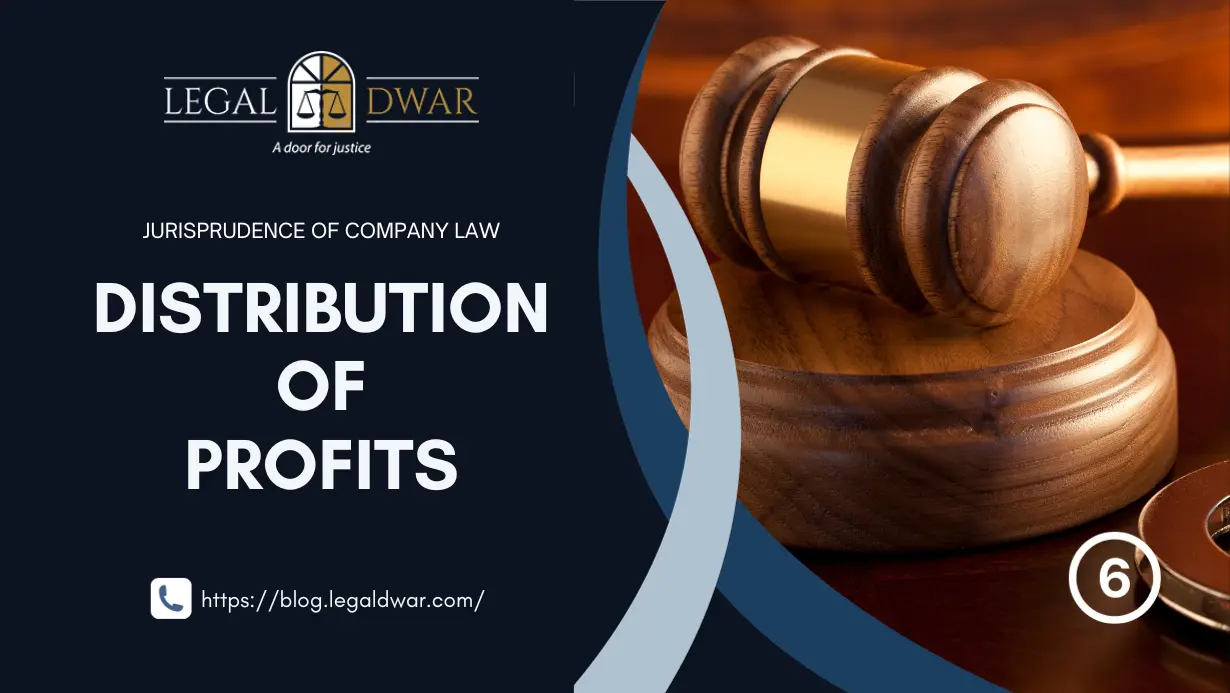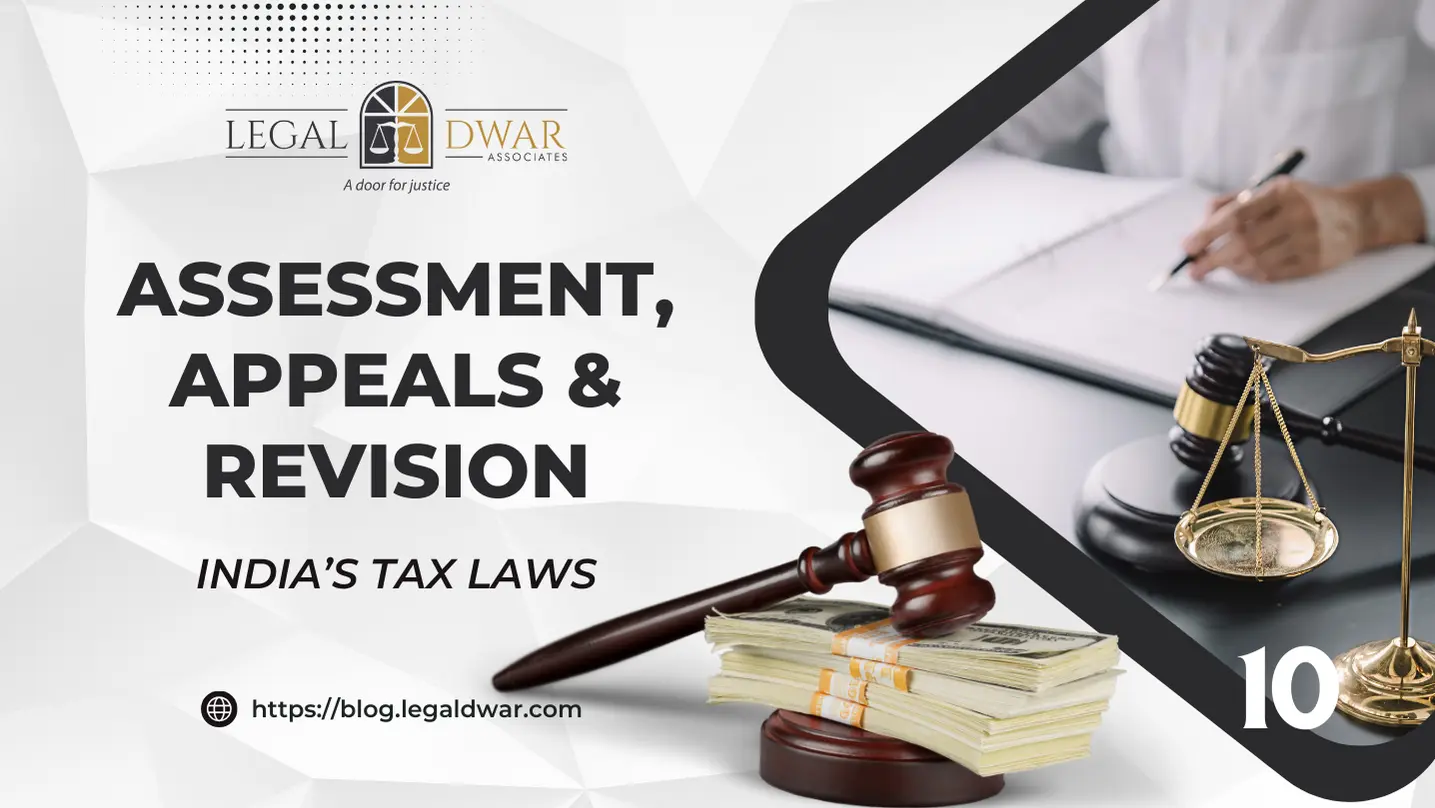Category: Law and Society

Demystifying the Advocate on Record System: A Pillar of India's Legal Landscape
The term "Advocate on Record" is primarily associated with the legal system in India, particularly within the context of the Supreme Court of India. An Advocate on Record is a legal professional who plays a crucial role in the filing and management of cases before the Supreme Court of India.

Finding the Perfect Lawyer: A Step-by-Step Guide
Choosing the right lawyer is a critical decision that can significantly impact the outcome of your legal case. Whether you find yourself in a complex litigation battle, need guidance for a personal injury claim, or require assistance with a business matter, the expertise and skills of your chosen lawyer can make all the difference. The right lawyer can provide you with invaluable advice, support, and advocacy throughout the legal process, while an ill-suited choice may lead to unfavorable results or unnecessary complications.

Influential Supreme Court Judgments: A Deep Dive into Their Impact
Supreme Court decisions hold a special place in the history of Indian jurisprudence, acting as guiding beacons that illuminate the path of justice. In the intricate tapestry of India's legal framework, these decisions have woven threads of legal precedents, principles, and interpretations that continue to shape the nation's legal landscape.

Defamation, Privacy, and Freedom of Speech: Decoding Social Media Laws in India
Social media has become an integral part of our daily lives, allowing us to connect and communicate with people from all over the world. In India, platforms like Facebook, Twitter, Instagram, and WhatsApp have gained popularity in recent years. According to Statista, as of January 2021, there were approximately 448 million social media users in India. This made it the second-largest social media market in the world.

Amendments to Employment Law: Implications for Employers and Employees
Employment law in India holds profound significance for both employers and employees as it governs the entire spectrum of employer-employee relationships, ensuring fair treatment, rights, and duties. It's a cornerstone of the labor market, acting as a safeguard against exploitation, discrimination, and abuse while promoting equitable working conditions. Employment laws in India encompass various aspects, including wages, working hours, safety, social security, and industrial relations. These regulations play a pivotal role in maintaining industrial harmony, protecting worker rights, and contributing to the country's economic development.

Indian Startup Legal Checklist: Launching Your Business on Solid Ground
Launching a startup is an exhilarating journey filled with innovation, ambition, and the pursuit of turning groundbreaking ideas into thriving businesses. Yet, amid the whirlwind of entrepreneurial excitement, many startups often underestimate the critical role that legal considerations play in their success. In reality, the early stages of a startup are precisely when robust legal groundwork is most essential.

Exploring India's Constitution: A Closer Look at Fundamental Rights
As Indian citizens, it is essential to understand our rights, privileges, and duties. Knowing our rights helps us make informed decisions, defend ourselves against injustice, and hold the government accountable. It also enables us to participate in the democratic process, express our opinions freely, and contribute to the country's progress.

The Basics of Indian Contract Law: Everything You Need to Know
Contracts are an integral part of our daily lives, from purchasing a cup of coffee to buying a house. A contract is a legally binding agreement between two or more parties that outlines each party's rights and obligations. Understanding contract law is essential for anyone who wants to enter into any agreement, whether personal or business-related.

The ABCs of India's Legal System: Understanding the Basics
India's legal system serves as the backbone of our society, ensuring order, justice, and fairness in our daily lives. Whether you're a citizen, a business owner, or an aspiring legal professional, having a basic understanding of India's legal framework is crucial. This knowledge empowers you to safeguard your rights, navigate legal issues, and actively participate in our nation's democratic processes.

Sexual Harassment Against Men : Legal Rights and Remedies
Sexual harassment is an issue that transcends gender, impacting individuals in various aspects of their lives. It is a form of misconduct that can cause emotional distress, disrupt professional and personal relationships, and infringe upon an individual's right to safety and dignity. While the conversation surrounding sexual harassment often centers on women as victims, it's important to recognize that this problem extends to men as well.

From Student to Advocate: Crafting Your Legal Destiny in India
India's legal profession is renowned for its rich history and diverse practice areas. Encompassing a vast and complex legal system, it plays a pivotal role in shaping the country's governance, justice, and societal norms. The legal profession in India is not only a means of upholding justice but also a dynamic field that offers a spectrum of opportunities for individuals with a passion for law.

Lok Adalat: Paving the Way for Swift and Inclusive Legal Resolutions in India
Lok Adalat, a term rooted in Hindi, translates to "People's Court." It represents a unique and decentralized mechanism of alternative dispute resolution (ADR) in India. Unlike traditional judicial processes, Lok Adalats focus on amicable settlement through conciliation and mediation, providing a platform where disputes are resolved with the active participation of the parties involved. The essence of Lok Adalat lies in its community-centric approach, aiming to deliver swift and accessible justice to the common people.

Understanding the Consumer Protection Act: A Comprehensive Guide
Consumer protection is a fundamental concept that safeguards the interests and rights of individuals who engage in transactions as buyers of goods and services. It is a crucial aspect of a well-functioning market, ensuring that consumers are treated fairly and have recourse in case of unfair or harmful practices.

Jurisprudence Of Company Law : Introduction - Part 1
In the complex landscape of legal frameworks, Company Law stands as a cornerstone, governing the establishment, functioning, and dissolution of entities known as companies. To comprehend the nuances of this legal domain, it is essential to delve into its jurisprudential foundations and grasp the meaning, nature, and distinctive features that define a company.

Jurisprudence Of Company Law : Shares and Share Capital - Part 2
Shares and share capital form the cornerstone of a company's financial structure, shaping its identity and influencing its operations. Understanding these concepts is crucial for investors, stakeholders, and anyone navigating the intricacies of corporate finance. This section provides a foundational introduction to shares and share capital, unravelling their definitions and underscoring their pivotal role in the organisational framework.

Jurisprudence Of Company Law : Members and Shareholders - Part 3
Navigating the intricate landscape of Company Law requires a comprehensive understanding of the roles and processes associated with members and shareholders. This article serves as a detailed guide, shedding light on the nuanced aspects of becoming a member and the rights and responsibilities bestowed upon shareholders within the legal framework.

India's Tax Laws : Direct Taxes - Part 1
Direct Taxes, as a pivotal component of tax laws, play a central role in shaping a nation's revenue system. These taxes are characterized by their direct impact on individuals and businesses, with income tax and corporate tax being notable examples.

India's Tax Laws : Basic concepts of Income Tax - Part 2
The Finance Bill stands as a crucial document in India's legislative landscape, especially concerning income taxation. It serves as the gateway for changes in tax laws and financial policies, unveiled annually alongside the Union Budget.

India's Tax Laws : EXEMPT INCOME - Part 3
The concept of "Total Income" lies at the heart of India's taxation framework, playing a pivotal role in determining an individual's or entity's tax liability. It encompasses all earnings, profits, and gains accrued during a financial year. Understanding Total Income is crucial for accurate tax assessment, as it forms the basis for calculating the amount on which income tax is levied.

Securities Laws 101: Introduction to the Securities Contracts Act - Part 1
The Securities Contracts (Regulation) Act, 1956 (SCR Act) stands as a pivotal legislation in the realm of Indian securities markets. Enacted with the primary objective of preventing undesirable transactions in securities and promoting the orderly functioning of stock exchanges, the SCR Act plays a crucial role in regulating the securities landscape.

Securities Laws 101: Securities and Exchange Board of India Act 1992 - Part 2
The Securities and Exchange Board of India (SEBI) Act, enacted in 1992, serves as the primary regulatory framework governing securities markets in the country. Established to address the need for a robust regulatory body, the SEBI Act empowers SEBI to oversee and regulate various aspects of the securities market.

Public Safety vs. Animal Rights: Balancing Acts in Stray Dog Management
Stray dog management is a critical concern that involves finding a delicate balance between ensuring public safety and safeguarding animal rights. The issue pertains to the coexistence of humans and stray dogs in urban and rural settings. Stray dogs, when not managed effectively, can pose risks to public safety due to incidents of bites and the potential transmission of diseases.

Securities Laws 101: Depositories Act, 1996 - Part 3
The Depositories Act, of 1996, forms the backbone of the Indian financial system, revolutionizing the way securities are held and traded. Enacted to promote transparency and efficiency, it introduced the concept of dematerialization, transforming traditional paper-based securities into electronic form.

Jurisprudence Of Company Law : Debt Instruments - Part 4
Debt instruments hold a significant place in corporate finance, acting as a crucial avenue for companies to raise capital by issuing financial securities. In the realm of Indian judiciary and company law, debentures and bonds emerge as pivotal components shaping the financial landscape.

From Section 377 to Equality: A Legal Journey in Same-Sex Marriage
The Supreme Court of India, the apex judicial body in the country, has played a pivotal role in shaping and redefining the legal landscape. Beyond interpreting laws, it serves as the guardian of fundamental rights, making landmark decisions that resonate across society. One such groundbreaking issue that has recently captured the court's attention is the legalisation of same-sex marriage.

India's Tax Laws : Computation of Income - Part 4
Income computation refers to the systematic process of determining an individual's or entity's total income from various sources in a given financial period. It involves the assessment and calculation of earnings, deductions, and exemptions to arrive at the taxable income figure. Understanding the computation of income is essential for accurate financial reporting, effective tax planning, and compliance with regulatory requirements.

Securities Laws 101: Issue of Capital and Disclosure Requirements, 2009 - Part 4
The Securities and Exchange Board of India (SEBI) is the regulatory authority governing the securities market in India. Established in 1988, SEBI plays a pivotal role in safeguarding investor interests, ensuring market integrity, and promoting the healthy growth of the Indian capital market.

Jurisprudence Of Company Law : Creation, Registration & Modification of Charges - Part 5
In the corporate realm, "charges" refer to the security interest or lien created on a company's assets. These assets can include tangible assets like machinery and intangible assets like intellectual property. Essentially, charges act as a form of security for lenders, assuring that if a company defaults on its obligations, the lender has a claim on the specified assets.

India's Tax Laws : Clubbing provisions, Set Off & Carry Forward - Part 5
Clubbing provisions in the Indian Income Tax Act refer to the inclusion of certain incomes in the total income of an assessee, which may originally belong to another person. This is done to prevent tax evasion through the transfer of income to family members or other entities. The provisions aim to ensure that the real beneficiary of the income pays the appropriate taxes.

Securities Laws 101: Listing Obligations and Disclosure Requirements, 2015 - Part 5
In the intricate tapestry of India's financial landscape, the Securities and Exchange Board of India (SEBI) plays a crucial role in weaving the threads of transparency, accountability, and investor protection. At the heart of SEBI's regulatory arsenal lies a set of guidelines known as the SEBI (Listing Obligations and Disclosure Requirements) Regulations, 2015.

Beyond Paperwork & Compliance: Registrar of Companies (RoC)
The Registrar of Companies, commonly known as RoC, serves as a pivotal authority in the regulatory framework governing companies. It is a statutory office under the Ministry of Corporate Affairs (MCA) in India. RoC is tasked with the responsibility of ensuring compliance with various provisions of the Companies Act and other allied acts.

Jurisprudence Of Company Law : Dynamics of Profit Distribution - Part 6
Profit distribution lies at the core of corporate operations, delineating how a company allocates its earnings among various stakeholders. In the context of Indian corporate governance, comprehending the nuances of profit distribution becomes paramount.

India's Tax Laws : Deductions from Gross Total Income & Rebate and Relief - Part 6
Taxation can often seem like a labyrinth of rules and calculations, but at its heart lie three critical concepts: deductions, rebates, and relief. These elements play a pivotal role in shaping the financial landscape for taxpayers, influencing the computation of taxable income and, consequently, the amount they owe to the taxman.

Securities Laws 101: Substantial Acquisition of Shares & Takeovers, 2011 - Part 6
The corporate landscape is a dynamic arena where ownership structures can shift, and power can change hands. In the Indian context, the Securities and Exchange Board of India (SEBI) has set forth comprehensive regulations to govern the substantial acquisition of shares and takeovers.

Jurisprudence Of Company Law : Corporate Social Responsibility - Part 7
Corporate Social Responsibility (CSR) is the ethical framework that outlines a company's efforts to contribute positively to society. It goes beyond profit-making and emphasizes a commitment to environmental and social concerns.

India's Tax Laws : Total Income and Tax Liability, HUF, AMT, AOP, BOI - Part 7
In the complex terrain of taxation, the computation of total income and tax liability stands as a critical cornerstone. Understanding these concepts is not just a matter of financial acumen but holds profound significance for entities of varied natures. Let's delve into the basics and explore why grasping tax structures is pivotal.

Securities Laws 101: SEBI (Buyback of Securities) Regulations, 1998 - Part 7
At the heart of the Indian financial landscape, the SEBI (Buyback of Securities) Regulations, 1998, stand as a robust framework designed to govern the intricacies of security buybacks. This regulatory apparatus sets the stage for companies seeking to repurchase their own shares, laying down the rules and procedures that shape these transactions.

Company Law 101: Accounts, Audit and Auditors - Part 8
In the complex world of corporate governance and financial management, understanding the core principles of accounts, audit, and the pivotal role of auditors is essential. This article provides a foundational overview of these key elements, shedding light on their significance in fostering transparency and accountability in the financial landscape.

India's Tax Laws : Classification and Tax Incidence on Companies - Part 8
Taxation is a fundamental aspect of a company's financial story, shaping its contribution to the economy and ensuring compliance with regulatory norms. In India, the taxation framework for companies is a crucial element that governs their financial responsibilities to the government.

Securities Laws 101: Delisting of Equity Shares (SEBI) Regulations, 2009 - Part 8
Delisting equity shares is a significant corporate action, and in India, this process is governed by the Securities and Exchange Board of India (SEBI) through the Delisting of Equity Shares Regulations, 2009. This article provides an introduction to this regulatory framework and emphasises its crucial role in shaping the landscape of equity shares in the Indian market.

Empowering Communities: A Comprehensive Guide to Self-Help Groups
Self-Help Groups (SHGs) are informal associations of people who come together to find ways to improve their living conditions. Generally, these groups are self-governed and peer-controlled, fostering collaboration among individuals of similar economic and social backgrounds.

Theories of Private International Law and Their Application : A Beginner's Guide
Private International Law (PIL) plays a crucial role in navigating the complex web of legal relationships that span across borders. We will provide a foundational understanding of PIL, including its definition and scope. Additionally, we'll explore the importance of theories in shaping the principles and applications of PIL.

Company Laws : Transparency and Disclosures in Corporate Governance - Part 9
In the complex world of corporate governance, Transparency and Disclosures stand as pillars that uphold the principles of accountability, trust, and ethical conduct. This section delves into the fundamental aspects of transparency and the pivotal role it plays in fostering robust corporate practices.

India's Tax Laws : Procedural Compliance in Taxation - Part 9
Procedural compliance stands as the cornerstone for individuals and businesses alike. It involves adhering to a set of rules and regulations laid out by tax authorities to ensure accurate reporting, timely payments, and overall adherence to taxation's legal requirements.

Securities Laws 101: SEBI (Share Based Employee Benefits) Regulations, 2014 - Part 9
The Securities and Exchange Board of India (SEBI) is the regulatory authority in India tasked with overseeing and regulating the securities market. Established in 1988, SEBI plays a pivotal role in maintaining the integrity of the market, protecting investor interests, and ensuring fair and transparent practices.

Company Laws : Inter-Corporate Finance of Loans, Investments, Guarantees Unveiled - Part 10
Inter-corporate financial transactions play a pivotal role in the dynamic landscape of corporate finance, serving as the financial arteries that connect entities within the business ecosystem. This article will explore inter-corporate transactions' definition, scope, and significance, highlighting their crucial role in corporate finance and business operations.

India's Tax Laws : Assessment, Appeals & Revision - Part 10
Taxation involves more than just filing returns; it encompasses a dynamic assessment, appeals, and revision process. This article provides a foundational understanding of this multifaceted domain, covering the basic tenets, the significance of the assessment, appeals, and revision processes, and the legal framework that governs tax assessments

Inside RERA: Key Provisions Shaping the Real Estate Industry
India’s real estate market has been a hotbed of shady developers, rampant delays, and opaque dealings for decades. In this regard, buyer protection seemed like mirage with hidden costs, high prices and construction faults hidden behind attractive brochures. As a result, consumer confidence and investor trust ebbed away from the industry that suffered frequent defaults, conflicts and delays.

Securities Laws 101: SEBI (Issue of Sweat Equity) Regulations, 2002 - Part 10
Sweat equity, a concept deeply entrenched in corporate practices, has evolved significantly, prompting the need for regulatory intervention.

Matrimonial Legalities: A Deep Dive into The Hindu Marriage Act, 1955
The Hindu Marriage Act, of 1955, remains a landmark legislation that has shaped the legal landscape of matrimonial relations within the Hindu community, contributing to the establishment of a more organised and uniform system for the solemnisation and dissolution of marriages.

Transparent Elections, Trusted Democracy: A Deep Dive into the Election Commission
The Election Commission of India (ECI) stands as a cornerstone in the democratic fabric of the country. Rooted in the historical evolution of electoral bodies in pre-independence India, the ECI was founded on principles of impartiality and transparency.

Lok Sabha Dynamics: Roles, Challenges, and Future Perspectives
Lok Sabha, translating to the "House of the People" in Hindi, is one of the two houses of the Parliament of India. Established as the lower house, the Lok Sabha plays a pivotal role in the country's legislative framework. It is a critical component of India's democratic governance structure, reflecting the principles of representation and accountability.

India's Upper House: Rajya Sabha's Journey Through Time
The Rajya Sabha, or the Council of States, stands as the upper house of the Indian Parliament, playing a pivotal role in the legislative process and governance of the nation. Comprising members with diverse expertise and representing various states and union territories, the Rajya Sabha serves as a forum for nuanced deliberations on critical matters affecting the nation.

Understanding Power of Attorney: How to Draft and Use It Effectively
The concept of a Power of Attorney (POA) holds significant weight in the realm of legal affairs, serving as a vital instrument for individuals to delegate decision-making authority. Understanding the nuances of a POA is essential, considering its far-reaching implications on financial, healthcare, and personal matters.

The Importance of Living Wills: Drafting Your Healthcare Directives
Living wills, often referred to as advance healthcare directives or medical directives, play a pivotal role in healthcare planning, empowering individuals to make crucial decisions about their medical treatment and end-of-life care. Today, we'll explore the definition and importance of living wills, provide an overview of healthcare directives, and emphasise the significance of drafting personalised documents tailored to individual preferences and values.

Empowering Guardianship: Your Step-by-Step Handbook for Creating Legal Protections
Legal guardianship is a vital legal concept that plays a crucial role in safeguarding the interests of individuals who may be unable to make decisions for themselves.

Company Law : Compromises, Arrangement and amalgamation, Oppression and Mismanagement, Liquidation
Corporate reorganisation within the purview of company law is a multifaceted process that involves strategic restructuring, compromises, arrangements, amalgamation, and other mechanisms to reshape the organisational structure and operations of a company.

Transforming Taxation: The Impact of GST on India's Indirect Taxes
Indirect taxes form a fundamental component of fiscal policies, encompassing levies imposed on goods and services rather than directly on income. Understanding the concept involves unraveling its dual purpose—revenue generation for governments and influencing consumer behaviour.
